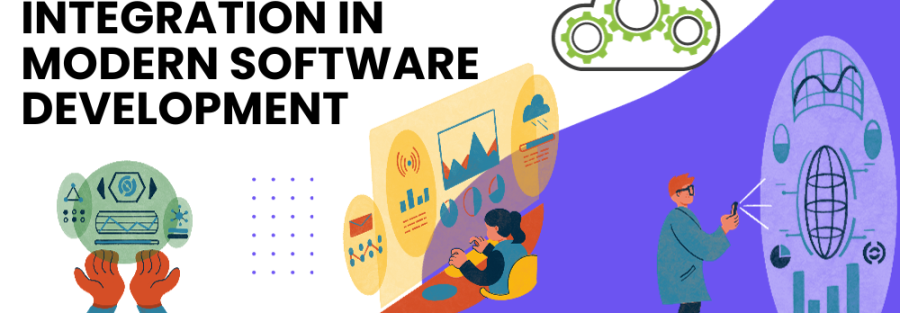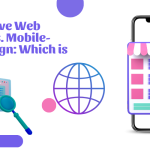In the ever-evolving landscape of modern software development, the integration of APIs (Application Programming Interfaces) has emerged as a transformative force, revolutionizing the way software is designed, developed, and deployed. From AI software that leverages machine learning and artificial intelligence, to best AI software that streamlines complex tasks, the role of APIs is central to these advancements. In this blog, we will explore how API integration is shaping the AI software development landscape, empowering businesses to create innovative solutions, streamline operations, and expand their offerings. We’ll also discuss how API integration is driving growth in the AI software business, enabling developers to harness the power of AI for various applications.
Understanding API Integration
Before delving into the power of API integration in AI software development, it’s essential to understand what APIs are and how they function. APIs are sets of rules and protocols that allow different software applications to communicate with each other. They define the methods and data formats that applications can use to request and exchange information.
API integration involves the seamless connection of various software components, enabling them to work together as a unified system. This interoperability fosters a higher degree of efficiency and functionality, as applications can leverage the capabilities of other software without the need to recreate them from scratch.
AI Software: A Game-Changer
Artificial intelligence has emerged as a game-changer in the world of software development. AI software leverages machine learning and data analysis to perform tasks that typically require human intelligence. These tasks range from natural language processing to image recognition and predictive analytics. The potential applications of AI are vast, spanning across industries such as healthcare, finance, marketing, and more.
The Role of APIs in AI Software Development
APIs play a pivotal role in AI software development by providing the building blocks for AI-powered solutions. Here’s how API integration empowers AI developers:
1. Access to Pre-Trained Models
APIs enable developers to access pre-trained AI models that are ready to use. For example, the Google Cloud AI API offers services for text and speech recognition, language translation, and sentiment analysis. By integrating these APIs, developers can harness the power of AI without the need to build models from scratch.
2. Data Integration
AI thrives on data, and APIs make it easier to connect AI models to data sources. Developers can use APIs to fetch, process, and feed data to AI algorithms, enabling intelligent decision-making and predictions.
3. Advanced Functionality
API integration allows developers to tap into advanced AI functionality that goes beyond traditional programming. This includes features like facial recognition, recommendation engines, and chatbots. These capabilities enhance user experiences and add value to software applications.
4. Real-Time Updates
AI models are not static; they require ongoing training and refinement. API integration facilitates real-time updates, enabling developers to improve AI models and adapt them to changing requirements.
5. Scalability
AI software often needs to scale to handle large volumes of data or user interactions. With API integration, developers can easily scale their AI infrastructure to meet growing demands.
The Impact on the AI Software Business
API integration has reshaped the landscape of the AI software business. Here’s how it’s making a significant impact:
1. Accelerated Development
API integration accelerates AI software development by providing ready-made components. This reduces development time and costs, allowing businesses to bring AI-powered solutions to market more quickly.
2. Diversification of Offerings
APIs enable AI software companies to diversify their offerings. They can create and market APIs that cater to specific industries or use cases, broadening their customer base.
3. Monetization Opportunities
The AI software business can monetize APIs by offering them to other developers and businesses. This not only generates revenue but also promotes the widespread adoption of AI technology.
4. Competitive Advantage
API integration gives AI software businesses a competitive advantage. They can stay ahead of the competition by continually improving and expanding their AI capabilities through API partnerships.
Use Cases of API Integration in AI Software
API integration in AI software is not limited to a single domain; it spans a wide range of applications. Here are some prominent use cases:
1. Chatbots and Virtual Assistants
AI-powered chatbots and virtual assistants have become increasingly popular for providing customer support, answering queries, and automating routine tasks. These solutions often rely on natural language processing APIs to understand and respond to user inputs.
2. Image and Video Analysis
APIs that offer image and video analysis capabilities are invaluable for applications such as content moderation, facial recognition, and object detection. They enable AI software to process and interpret visual data.
3. Recommendations and Personalization
E-commerce and content platforms leverage recommendation APIs to provide personalized suggestions to users. These APIs analyze user behavior and preferences to deliver tailored content and product recommendations.
4. Speech Recognition and Synthesis
APIs for speech recognition and synthesis are widely used in voice assistants, transcription services, and voice-controlled applications. They empower AI software to understand and generate human speech.
5. Sentiment Analysis
Sentiment analysis APIs gauge public sentiment by analyzing text data. They are used in social media monitoring, customer feedback analysis, and market research to understand public opinions and trends.
Best Practices for API Integration in AI Software Development
To make the most of API integration in AI software development, consider these best practices:
1. Choose Reputable APIs
Select APIs from reputable providers with a track record of reliability and security. Prioritize APIs that align with your project’s goals and requirements.
2. Plan for Data Privacy
When integrating APIs, consider data privacy and security. Ensure that sensitive data is handled in compliance with relevant
In conclusion, the power of API integration in modern software development, particularly in the realm of AI software, is a transformative force that has reshaped the landscape of technology. APIs have become the cornerstone of innovation, enabling developers to harness the capabilities of AI without the need to reinvent the wheel. The ability to access pre-trained models, seamlessly integrate data, tap into advanced AI functionality, and facilitate real-time updates has made AI software development more accessible and efficient.
For businesses in the AI software sector, API integration has brought about a revolution. It accelerates development, offers diversification opportunities, creates monetization possibilities, and provides a competitive edge in a rapidly evolving market. Through partnerships and collaborations, AI software businesses can continue to expand their AI capabilities and deliver cutting-edge solutions to their customers.
The use cases of API integration in AI software are vast and diverse, spanning industries from customer service and e-commerce to content moderation and sentiment analysis. AI, powered by APIs, is making our digital experiences smarter, more personalized, and efficient.
However, it’s crucial to approach API integration with care. Selecting reputable APIs and prioritizing data privacy and security are fundamental to a successful integration strategy. With these considerations in mind, developers and businesses can continue to unlock the full potential of AI software, further propelling innovation and improving the lives of people in various ways.
As we move forward in the digital age, the power of API integration in AI software development will only continue to grow. The synergy between AI and APIs represents a driving force that fuels progress and opens up new horizons in the world of technology, promising even greater breakthroughs and possibilities in the years to come.


